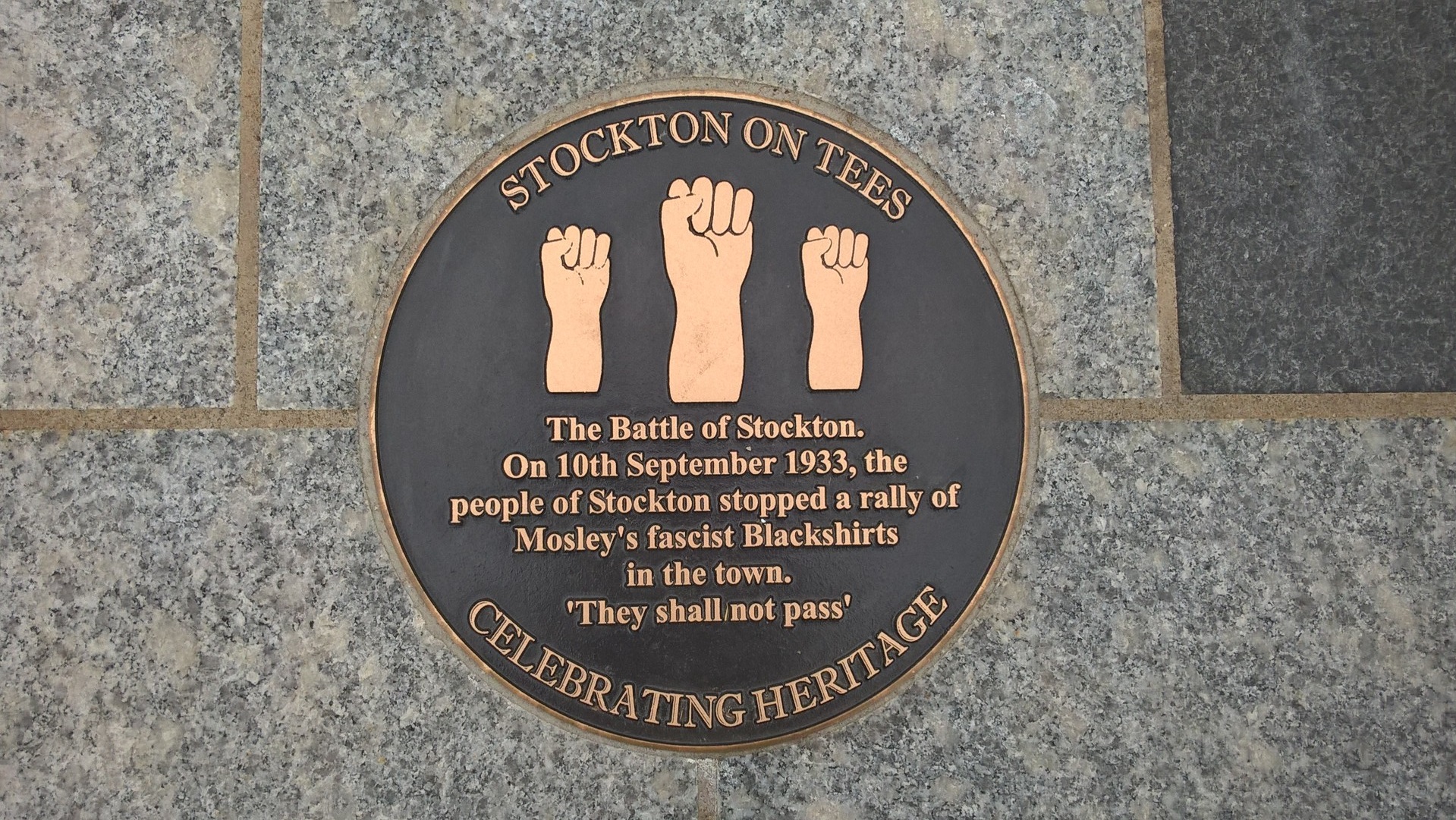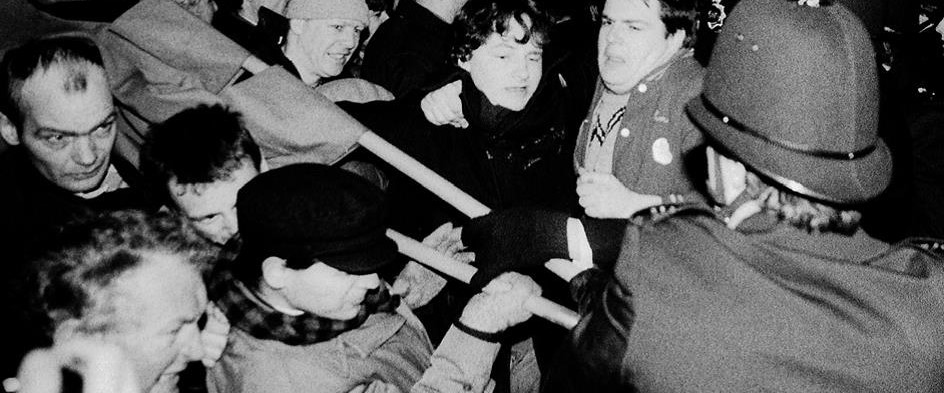‘A struggle that never ends’
Millions of people have taken to the streets in countries across the world today on May Day (May 1) in the largest celebration of working-class solidarity and achievements in the world.
In London alone, the city’s annual May Day celebration drew tens of thousands of people, who marched through the streets of the capital to a rally in Trafalgar Square.
Unite members joined marches in London and across the UK, including in Liverpool, Manchester, Bristol, Sheffield and other towns and cities.
Unite assistant general secretary Steve Turner today (May 1) spoke at a May Day rally in Bristol, where he highlighted a wave of strikes that started in the city 130 years ago, many of which were led by women.
Proud to have spoken at #Bristol’s @MayDay2019 celebrations. A tradition started in Chicago 133 years ago and marked across the globe. It’s time 1 May was made a public holiday here! #InternationalWorkersDay #FortheMany pic.twitter.com/x7v9Q9sreB
— Steve Turner (@SteveT_Unite) May 1, 2019
He spoke of the Bristol branch of Gas Workers’ Union, which joined forces with the London branch and together they successfully fought for better pay and working conditions. These strikes sparked a fire that then led to the Bristol Dock strikes, strikes among women cotton workers at the Barton Hill Mill, and later Sanders’ Sweet Factory women workers struck, too.
“The lessons of the Sanders’ women is that it’s the working class that makes its own history and that it’s only us that will keep it alive,” Turner said. “We’ve always stood up for democracy and we must never take that democracy for granted.”
Tribune Magazine today highlighted the origins of May Day with an account from the late historian Eric Hobsbawn. He wrote on the centenary of May Day celebrations in 1990 that it was important to remember the history of May Day because “it demonstrates the historic power of grassroots thought and feeling, and illuminates the way men and women who, as individuals, are inarticulate, powerless and count for nothing can nevertheless leave their mark on history.”
The late historian Eric Hobsbawm recounts the origins of International Workers’ Day. #MayDay https://t.co/xofaWlFSiK
— Tribune (@tribunemagazine) May 1, 2019
As Unite Scotland highlighted, central to the first May Day demands in 1890 was the call for an eight-hour working day:
Happy May Day to all workers around the world today, but what is #MayDay?
On May 1st 1886, >300,000 workers in the 109 yrs & still young United States (our retired members insisted) walked off their jobs in the fight to gain an 8hr working day (12-16 were common at the time). pic.twitter.com/aUZIr5cUBw
— Unite Scotland (@UniteScotland) May 1, 2019
But May Day is more than just reflecting on historic struggles.
Unite executive officer Sharon Graham said that trade unionists coming together more than a century ago to successfully demand a shorter working day should serve as inspiration for future goals and demands.
“Today, we should use May Day to not only commemorate the struggles of the past but also to plan for the fights to come,” she told UNITElive. “Automation must not mean job losses and work must remain a central pillar of society. Automation is an opportunity to deliver a shorter working week with no loss of pay.”
May Day has its roots in the battle to cut working time – for the 8 hour day. Now we can use the wealth gains from automation to cut working time, without loss of pay – protect jobs; deal with workplace stress; tackle the childcare crisis & to free up time for life #MayDay2019 pic.twitter.com/vIswmVR7AL
— UniteWorkVoicePay (@WorkVoicePay) May 1, 2019
Labour leader Jeremy Corbyn too said May Day should remind us of the challenges we face in the future:
On #MayDay this year there’s no bigger threat than climate change and it’s working class communities, around the world, that will suffer the most. It’s working class people who will lose their jobs as resources run dry, and be left behind as the rich escape climate catastrophes.
— Jeremy Corbyn (@jeremycorbyn) May 1, 2019
The TUC marked May Day on social media by highlighting the importance of being part of a trade union and fighting for trade union rights:
Happy #MayDay, when workers of the world unite in solidarity and celebration.#InternationalWorkersDay reminds us that our rights weren’t gifted, but won by workers who refused to accept second best.
Together we’re stronger. Together we can win. pic.twitter.com/9xI0mvzl5E
— TradesUnionCongress (@The_TUC) May 1, 2019
As did Unite assistant general secretary Tony Burke:
Happy May Day to comrades and friends in the Trade Union and Labour Movement around the world. Support the right to join a union, trade union freedoms and collective bargaining. @UnionFreedom pic.twitter.com/Kz09I7rN7S
— Tony Burke (@TonyBurke2010) May 1, 2019
And London Mayor Sadiq Khan:
When workers of the world unite in solidarity, great strides are made towards better, fairer and more equal working lives for all. This #MayDay, let’s thank trade unions and labour movements in London for ensuring rights of working people are put first and no-one is left behind. pic.twitter.com/tBRSkdZ7LN
— Sadiq Khan (@SadiqKhan) May 1, 2019
Unite general secretary Len McCluskey who is set to speak at May Day rallies at the weekend, including in Liverpool, Sheffield, and Manchester, called for strong trade unions as “the best guarantee of holding on to what we’ve secured”.
Solidarity greetings on #MayDay2019 with all those fighting for justice for working people across the globe. Today we think of the hard-fought gains our class has made – a struggle that never ends. Strong trade unions are the best guarantee of holding on to what we’ve secured.
— Len McCluskey (@LenMcCluskey) May 1, 2019
Keep May Day’s legacy alive by joining a trade union. Find out more here.Â
 Like
Like Follow
Follow


